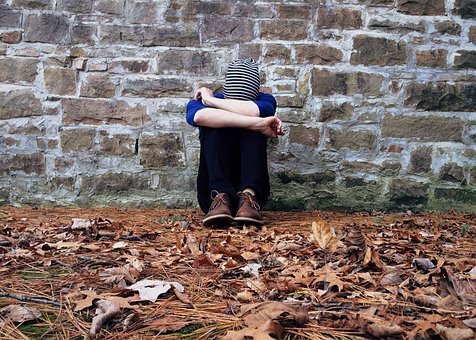Lack of Energy & Depression
Many people experience feelings of sadness and lack of energy at some time in their life. In most cases, these feelings may last for a couple of days and then disappear. People who are depressed experience a lack of energy that persists for an extended period of time. These feelings may become so severe that they interfere with daily tasks and normal functioning.


SYMPTOMS
Depression is characterized by feelings of sadness, anxiety and unhappiness. In addition, those with depression often experience fatigue and lack of energy combined with a decreased interest in daily activities. Other symptoms of depression include decreased sex drive, changes in appetite, irritability, feelings of worthlessness, difficulty concentrating, crying spells and frequent thoughts of death or suicide, according to MayoClinic.com.

TYPES OF DEPRESSION
There are several forms of depression. The most common forms include major depressive disorder and dysthymic disorder. Major depressive disorder is characterized by severe symptoms that interfere with daily life and ability to function normally, according to the National Institute of Mental Health. Dysthymic disorder is characterized by mild symptoms of depression that do not interfere with normal functioning. Other types of depression include psychotic depression, postpartum depression and seasonal affective disorder, or SAD.

MEDICATIONS
Most cases of depression are treated with a combination of medications. Available medications include antidepressants, selective serotonin reuptake inhibitors, mood-stabilizers and anti-anxiety medications. Some medications used to treat depression can actually increase fatigue and lack of energy, however, so it is important to work closely with your doctor to determine which medication is best for you.

PSYCHOTHERAPY
Psychotherapy is often used in conjunction with medications to help treat depression. Psychotherapy consists of talk sessions with a licensed psychotherapist. The most common type of psychotherapy used for depression is cognitive behavior therapy. This therapy involves identifying negative thoughts and behaviors and replacing them with positive thoughts and feelings. According to MayoClinic.com, cognitive behavior therapy is based on the idea that it is your own negative thoughts that cause your depression.

LIFESTYLE MODIFICATIONS
Increasing physical activity can help increase your energy levels and alleviate other symptoms of depression. Engaging in exercise that you enjoy can boost your overall mood as well. It is also beneficial to avoid alcohol. Although alcohol may seem like a temporary fix, alcohol can contribute to loss of energy and worsen other symptoms of depression. Getting adequate amounts of sleep can also help improve energy levels and help you cope with depression.


Galini
